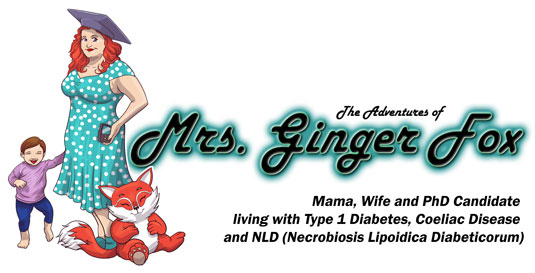Due to the pandemic, one benefit has been the fact that all research conferences related to my studies were forced online. As such, I have been extremely lucky to attend several conferences this year and have connected with several fellow early career researchers, as well as fellow researchers with diabetes like myself. Here’s what I took away from some of the recent conferences I attended:
- The networking element has been extremely beneficial in discussing future projects, as well as how to engage across a diverse stakeholder network that includes consumers, medical professionals, and academic researchers. I found that taking the time to set up my profile on the conference website/platform, making sure I had a picture uploaded, as well as a good summary of my research and background (1-2 sentences max) really helped me connect with others – from this, I now have grown my LinkedIn by 20 new connections, and Twitter by over 50 followers due to people I have met at conferences being able to easily locate me from the information I provided for my conference profile. I am now very thankful to have connections with potential stakeholders from overseas universities, medical/pharmaceutical companies, and government – connections that may not have occurred if I didn’t spend the time making my profile and reaching out to fellow attendees who also had completed their profiles.
- Whilst many projects and conferences have thrived due to the pandemic advancing technological access to healthcare services – a reverse digital divide has become more apparent, especially for target consumer audiences from culturally and linguistically diverse backgrounds, or from a low-socio economic status as they often have limited technological access. Therefore, it is important for researchers to consider inclusivity in relation to technological accessibility, as well as continuing to reach out to targeted consumer groups for recommendations on suitable engagement methods during the pandemic. Such feedback from conferences has led to me to reflect on projects I am involved in, suggesting changes in relation to capturing the best peer support methods for target audiences and an improved real-time network of support for Peer Support Facilitators.
- I was disappointed to see some speakers (even keynote speakers) use language that perpetuated stigma for consumer audiences (ie. Compliant and non-compliant patient). I was very excited to hear from several international speakers prominent in their fields of research, however their presentations were received by me with some disappointment when disempowering language towards consumers was used in the first few slides. With more and more consumers having the opportunity to participate in conferences, such language usage can make consumers in the audience feel like their presence is not as valued or given the recognition it deserves. For future conferences, having consumers as part of the conference planning and development committee to ensure communication guidelines are discussed and provided to presenters would be highly recommended to ensure language that may offend stakeholders is avoided.
- Unless consumers are a part of the development of the conference, you may need to expect minimal consumer representation in content. From a 2-day conference, only one presentation was about consumer perspectives related to healthcare, and no presenters were people with diabetes. Whilst I understand that clinical conferences may have a focus on delivering outcomes in line with scientific and data, it is important for those with the conditions examined have the option to also be an active part, and the opportunity to provide feedback. There are certainly several well-spoken people with diabetes with clinical career backgrounds who can bring a very well-rounded perspective to conference discussions. However, some conferences are actively trying to showcase and highlight consumers and their contributions, including holding symposiums that discuss the benefits of consumer involvement; therefore, it is refreshing to see clinical and academic presenters and committee members collaborating with consumers for several 2022 diabetes-related conferences.
- Representation and diversity: sadly, many of the reported studies were delivered from teams of primarily white, male, senior academic and clinical staff. It took me by surprise that for studies that examined targeted consumer audiences from specific cultural or ethnicities, there was no representation of said audiences in the project team. Whilst I am very privileged to be working in a diverse research team who accurately represents the targeted consumer audiences of our studies, it was an eye-opener to see that some research teams do not have the same representation. For future conferences, it would make such more of an impact if participants from the consumers examined were more proactively acknowledged in the studies presented – I included this when given the opportunity to provide feedback. Whilst my team had the opportunity to reflect on the conferences attended and how we could help improve future conferences, it is so important to provide feedback on conferences. Unless feedback is received, stakeholders in the conference planning committees won’t know what their target audience wants to see in future! It is also a result of my conference attendance this year that I have signed up to be on a conference planning committee for 2022, ensuring consumer representation is maintained.
Overall, the dynamics of consumer involvement in clinical conferences is slowly evolving – with more research being released demonstrating the importance of consumer engagement in clinical outcomes, as well as some incredible people with diabetes in the diabetes research sphere. From my conference attendance, I have learned the best methods to engage and network with new stakeholders, I have been reminded of the importance of consumer contribution and participation in conferences as a key stakeholder, and have reinforced to academic stakeholders the importance of representation and recognition of consumer stakeholders in the projects that are presented. I look forward to seeing how conferences will adapt and improve moving forward, especially in the context of consumer representation in healthcare!
